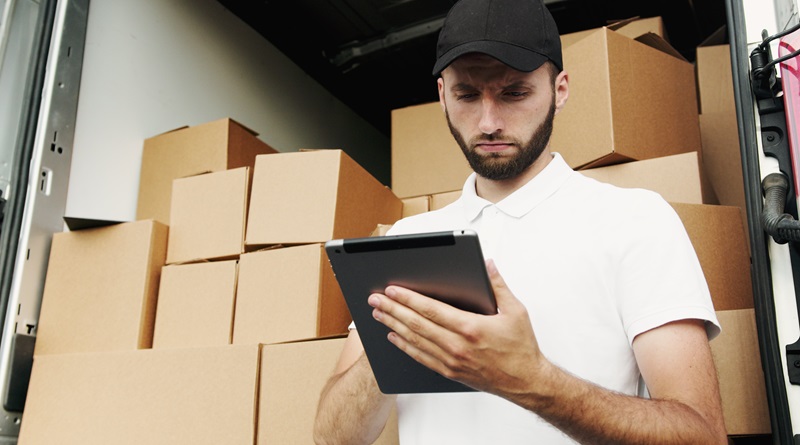Price of Online Shopping Can Rise Due To Tax Hike

Online shopping has for the last few years changed the landscape of how businesses operate in the USA and the rest of the world. With a wide variety of products and brilliant online shopping delivery models, the past few years have seen a gradual shift of customers from the “brick & mortar stores” to online shopping giants like Amazon. While the impact of these stores on consumer habits and preferences has been observed from quite some time back, online shopping and taxes were considered mutually exclusive terms; hard to enforce, and almost impossible to track. As tracking systems have improved and most monetary transactions have moved on to online modes, lawmakers have mulled over a way to even the playing field & extract an online shopping tax from online retailers.
What is the Sales Tax About – A Brief Introduction
In 2011, Main Street Fairness Act & the Marketplace Equity Act of 2011 were discussed but not ratified by the US Senate. Further in 2015, the Marketplace Fairness Act of 2015 received considerable debate over the possibility of taxing online delivery services and subsequently introducing a sales tax on delivery services. Initially, businesses that ran online stores were only required to pay any kind of taxes if they also ran a physical store or a chain of said stores in the state. The argument remained that the increasing prevalence of online shopping & online delivery services has eroded the prevalence of brick & mortar stores and the taxes from the latter which were a main source of revenue for the state legislations have significantly reduced.
Thus came the sales tax which mandates that after the online delivery services reach a certain threshold of revenue, they will be required to pay a sales tax on the delivery of the goods sold to the respective state government where they have established this “online delivery” nexus (Nexus being a fancy legal word for connection with the state). Since sales tax on delivery services is under the ambit of the states, every state can modify & have their own online shopping & taxes rules. While some states have given time till 2021 to enforce the said tax, others leave out certain articles (like clothing) or businesses (small & medium enterprises) from being taxed.
The possible levelling effect of this sales tax on delivery & the use the revenue generated will be put to are issues still up for debate, one thing that remains clear is that the price of online shopping is going to witness a hike post the legislation.
What About the Prices? – Assessing the Impact of the Sales Tax on Online Prices
A sales tax on delivery services necessarily means that a percentage of the online shop price will now have to be paid to the state as an online shopping tax. The big players in the online delivery & shopping market, to compensate, will have to push up the online shop prices. This is bad news for customers who seek out online shopping of home and kitchen products, beauty and grooming, fashion, toys and many more for cheaper prices as compared to the prices offered by physical stores. This is also expected to discourage retailers from offering huge discounts (ranging anywhere from 30% to 80%) on their portals from time to time.
As the price of online shopping spikes up, market analysts predict a renaissance for physical stores which have been struggling under the dual impact of sales taxes as well as attracting customers beyond their local radius. There will be increased competition and a more level playing field for traditional stores with their virtual counterparts. Thus, online shopping and taxes are expected to go hand in hand with increased sales from physical stores.
While any kind of taxation is considered against the spirit of the free market, the provision of only levying a sales tax on larger corporations while exempting small businesses ($100,000 in sales or 200 different transactions is the threshold) may be a silver lining for both customers as well as the small local retailers present in different parts of the country. The exemption from sales tax on delivery gives an opportunity to small retailers to maintain cheaper online shop prices thus attracting new customers. The cheaper the prices of online shopping, the higher will be the customers’ willingness to discover a wider variety of products via these smaller retailers.
The Way Forward
It is difficult to say how online shopping delivery will be affected by a sales tax on delivery by the government but a few clear trends emerge from the whole debate:
- Online purchases will be costlier if the government has its way. On the consumer’s end, it is clear that shoppers will have to pay more for their purchases whether they choose online shopping delivery or prefer to go to traditional brick and mortar stores.
- Since, sales tax on online shopping is more at the whims of the different states in the US, buying certain products can be cheaper from state to state. This depending on the situation leaves either loopholes or opportunities to be exploited by customers and retailers alike.
- This though also results in a greater burden on businesses since online delivery tends to be beyond a multitude of state borders making compliance extremely difficult. While delivering a piece of clothing which people shop online to Pennsylvania will attract no tax, any other state will levy a different rate of tax leading to multiple prices of the same product. Major players like say Walmart or Amazon find it easier to establish nexus with states but it makes matters difficult for medium businesses.
- Experts have also warned that the vast ecosystem of the internet and as a result, online shopping will make tracking of taxes extremely costly and difficult. Huge reserves of money in terms of lost taxes can be a behemoth creature to deal with which undermines the purpose of such taxes.
- The revenue collected can be used to harbor an improved ecosystem of businesses or can be used for funding other public projects. But an online shopping tax will hinder the existence of fair and free markets which is essential to foster the said ecosystem.





